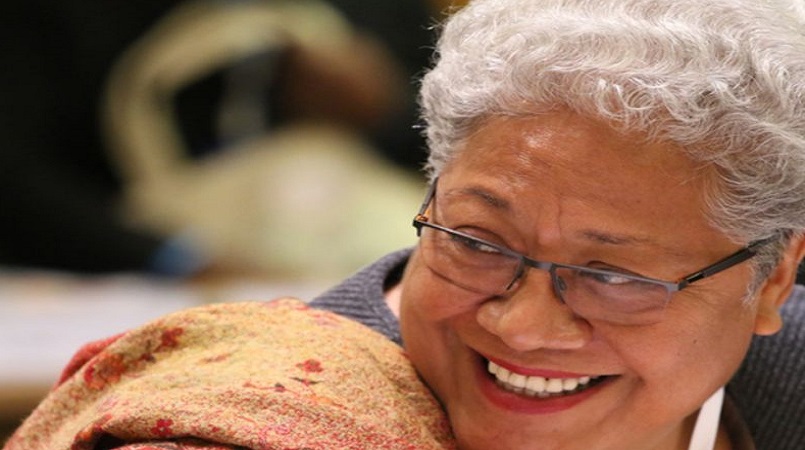
More than a week after the Pacific nation went to the polls, Samoa has ruled that not enough women were elected to Parliament in order to fulfil a constitutional gender quota.
As a result, an additional woman, Ali'imalemanu Alofa Tuuau, was declared MP for the incumbent Human Rights Protection Party (HRPP), joining five other women already elected to Parliament.
The move has complicated the aspirations of former deputy prime minister Fiame Naomi Mata'afa, who was expected to become the nation's first female prime minister once her Fa'atuatua i le Atua Samoa ua Tasi (FAST party) claimed a slim majority.
But the late-night decision made by Samoa's Electoral Commission and Head of State has cast doubt over that outcome, providing HRPP — which has ruled Samoa for nearly 40 years — with one more seat in its bid to clinch victory.
"The law is the law, but I just think it makes Samoa look funny, and it's almost like a joke," he said.
"The HRPP is not going to go down without a fight. We were prepared for the court fights, but definitely did not expect this one on a mere technicality."
The complication stems from Samoa's controversial "10 per cent law" designed to improve female representation in politics by introducing a gender quota.
The 2013 law mandates that at least 10 per cent of Samoa's Parliament be reserved for women, generally interpreted to require at least five women be elected to its 54 seats.
"The general consensus after the official results were released was that the quota had been met, because five women had been elected outright," said Kerryn Baker from the Department of Pacific Affairs at the Australian National University.
But the Electoral Commission has interpreted that law differently, stating "only 9.8 per cent of the women membership was achieved after the general election" and therefore one more female politician would be appointed to Parliament.
The shock announcement gave the incumbent HRPP 26 seats, and almost secured longstanding Prime Minister Tuilaepa Sailele Malielegaoi's power for a further five years — if it were not for independent MP Tuala Tevaga Iosefo Ponifasio who confirmed he would join the opposition FAST party.
It leaves the Parliament in a 26-26 deadlock between HRPP and FAST.
Though Tuala says he has "no problem" with the gender quota in Parliament, he doesn't agree with its recent interpretation.
"The declaration by the Head of State last night to bring in an extra female member of Parliament, to my mind is unconstitutional," Tuala said.
"The problem now is how we interpret the 10 per cent and five women."
The FAST party has called the appointment of a sixth woman to Parliament "null and void" and has filed a motion to declare the decision unconstitutional.
The situation has put proponents for parliamentary gender quotas in a strange position, since the additional female MP may spoil Fiame's chances of becoming one of the few female heads of state in the Pacific.
Dr Baker has called the situation "ironic", but underlined the need for Pacific countries to increase the number of women in seats of power.
"Samoa was the first independent state in the Pacific that introduced a gender quota and the only one to date, so it's a real trailblazer in the region," she said.
Though Dr Baker admits the recent news from Samoa "makes things a bit more difficult for supporters of the quota," she urged people not to lose sight of the original purpose of the law: "To have women's voices represented at the highest levels of politics."
Now that the official election results have been released, the period for electoral petitions to Samoa's court has been opened.
These court challenges will determine whether MPs retain their seats, and will ultimately decide who will form the next government.
